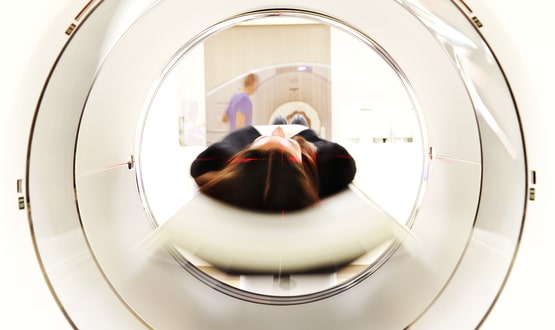Rapid cancer diagnosis centres to be introduced at 10 NHS hospitals
- 5 April 2018

New rapid diagnostic and assessment centres for cancer are being set up in England as part of efforts to catch and diagnose the disease more quickly.
The so-called “one-stop shops” will be piloted in 10 NHS hospitals in England and make it possible for patients displaying symptoms of cancer to be assessed and diagnosed in as little as a day, rather than having to wait several weeks or months.
The ten centres will operate at North Middlesex University Hospital, University College London Hospital, Southend University Hospital, Queens Hospital in Romford, Royal Free Hospital in London, St James University Hospital in Leeds, Airedale General Hospital in West Yorkshire, University Hospital South Manchester, Royal Oldham Hospital and Churchill Hospital in Oxford.
While each of the centres will operate in slightly different way different ways, all have been set up to diagnose cancers early in people who do not have so-called ‘alarm symptoms’ for a specific type of cancer.
Currently, people who display non-specific symptom like unexplained weight loss, loss of appetite or abdominal pain are often referred for different tests for different cancers, delaying the diagnosis.
Now, clinicians will be able to refer patients to the new, rapid assessment centres where all tests can can be performed under one roof, NHS England said.
While some patients will receive a definitive diagnosis on same day, others will need to undergo further assessment. However, NHS England said patients will generally be able to expect a diagnosis within two weeks of their first appointment.
Those diagnosed with cancer will then be referred to specialists, while patients displaying benign conditions will receive appropriate treatment and advice about prevention.
Cally Palmer, national director for cancer at NHS England, said: “Early diagnosis is crucial to saving lives and providing peace of mind for patients, which is why we are driving forward plans to revolutionise our approach to cancer in this country.
“These new one stop shops represent a real step change in the way people with unclear symptoms are identified, diagnosed and treated.”
The new centres are part of the NHS’s plan to enable patients with suspected cancer to receive a diagnosis or given the all-clear within 28 days.
The pilots make up the Accelerate, Co-ordinate and Evaluate (ACE 2) Early Diagnosis Programme, a joint initiative by NHS England, Cancer Research UK and Macmillan.
Sara Hiom, Cancer Research UK’s director of early diagnosis, said: “We’re confident that these ten pilot centres will give us a much better understanding of what’s needed to speed up the diagnosis and treatment of people with less obvious symptoms, improve their experience of care and, ultimately, survival.”
The NHS recently adopted new MRI technology that enables men with suspected prostate cancer to have a scan, receive their results and have any necessary biopsy in a day, rather than over multiple outpatient visits spanning several weeks.





4 Comments
Hmm it appears like your blog ate my first comment (it was extremely long) so I guess I’ll just sum it up what I had written and say, I’m thoroughly enjoying your blog. I as well am an aspiring blog blogger but I’m still new to the whole thing. Do you have any suggestions for rookie blog writers? I’d certainly appreciate it.
Another example of postcode lottery in NHS. Ideally all patients in the country should have access to same level of services.
It’s a shame that there is no single hub in the South/South West of England. This looks very London-centric – with a few token additions in the North of England
On the face of it, this looks like a good news story and if this is new, additional capacity that has been provided, I hope it will be very successful.
if however, this is existing capacity being ring fenced for a specific purpose, then again it may we prove to be successful. The difference here is that something/ someone else will suffer/ be delayed to achieve this as there is not enough capacity in the system overall.
It would be great to know where the trained staff are coming from,
Does anyone know?
Comments are closed.